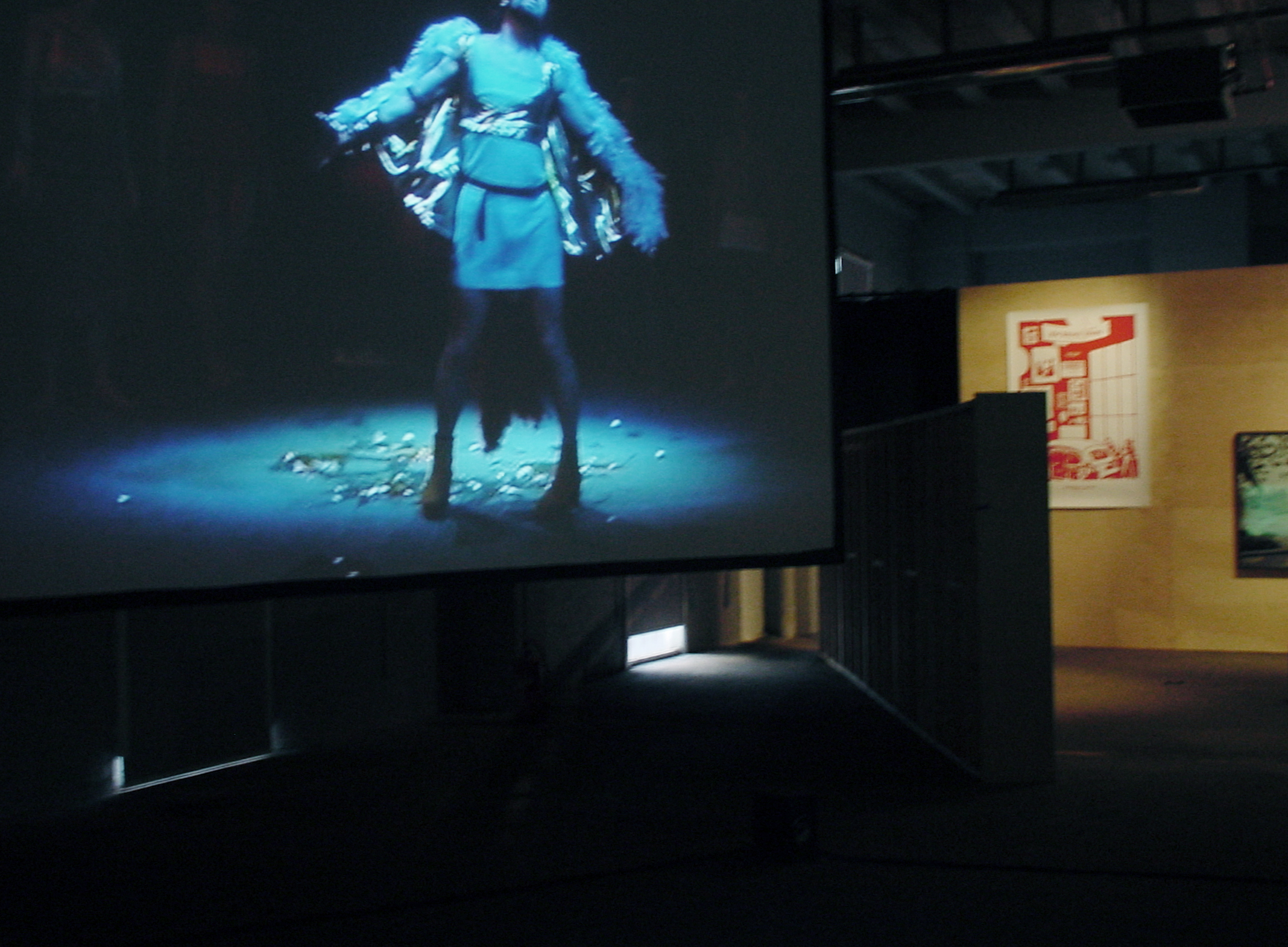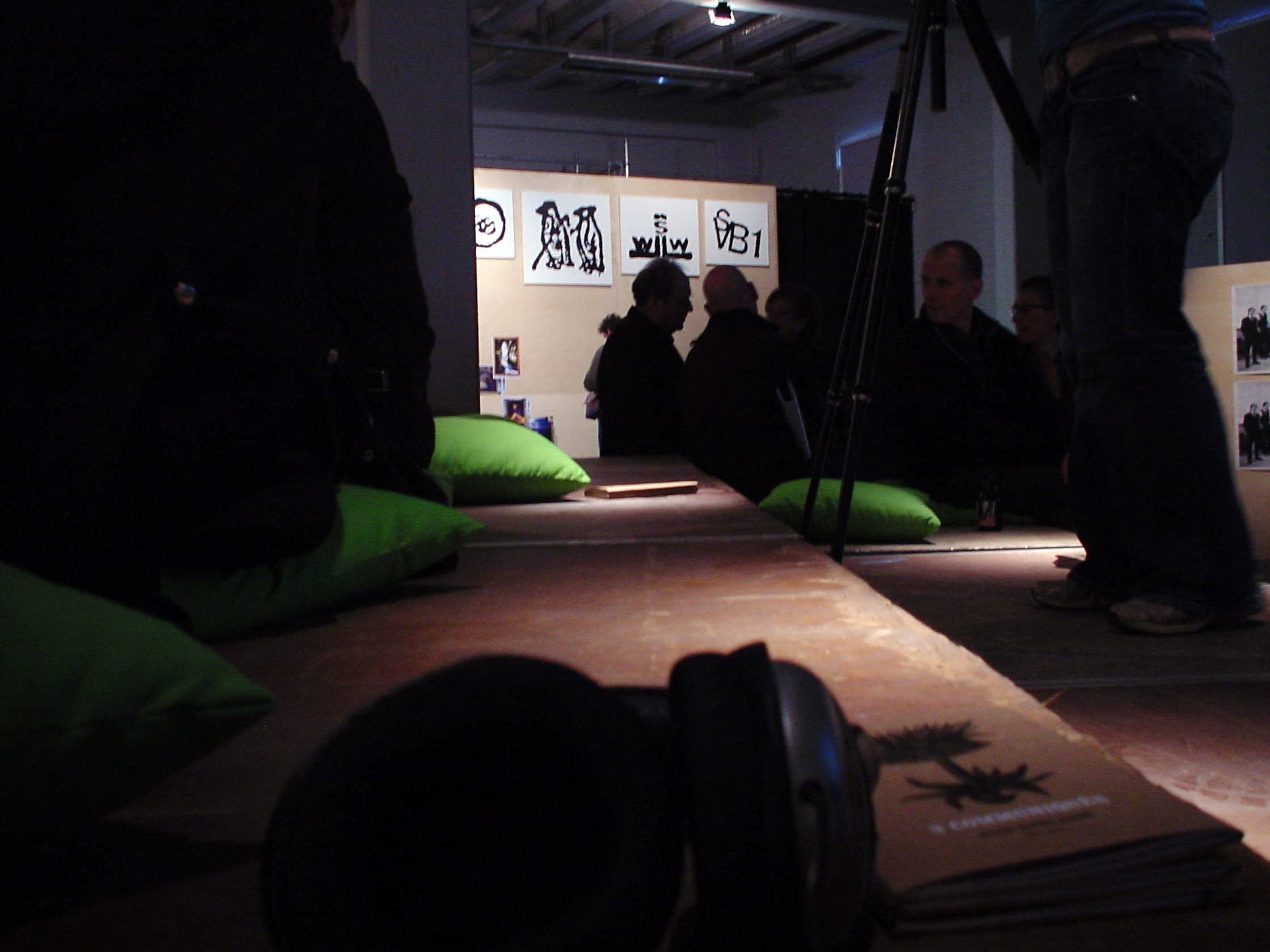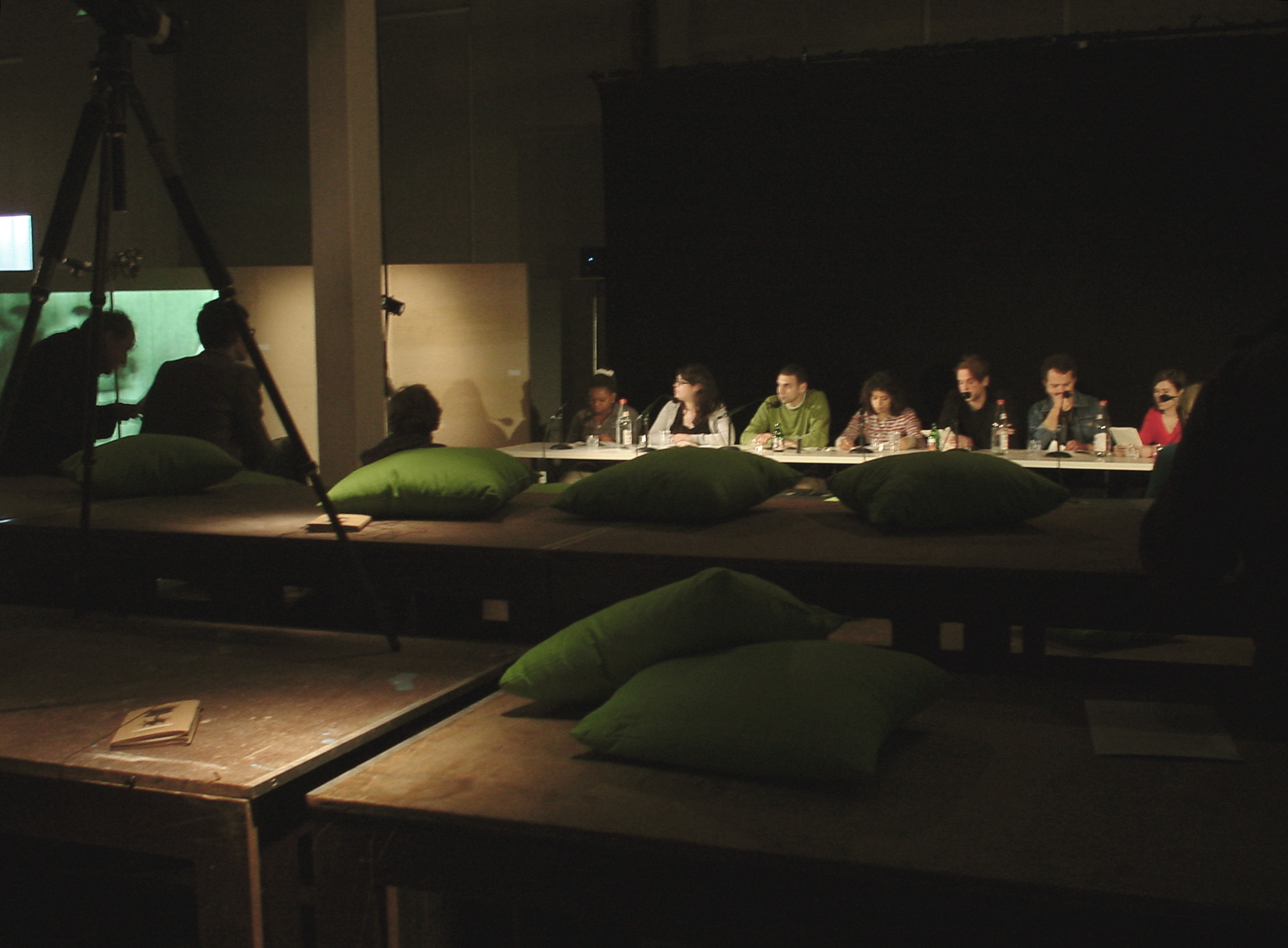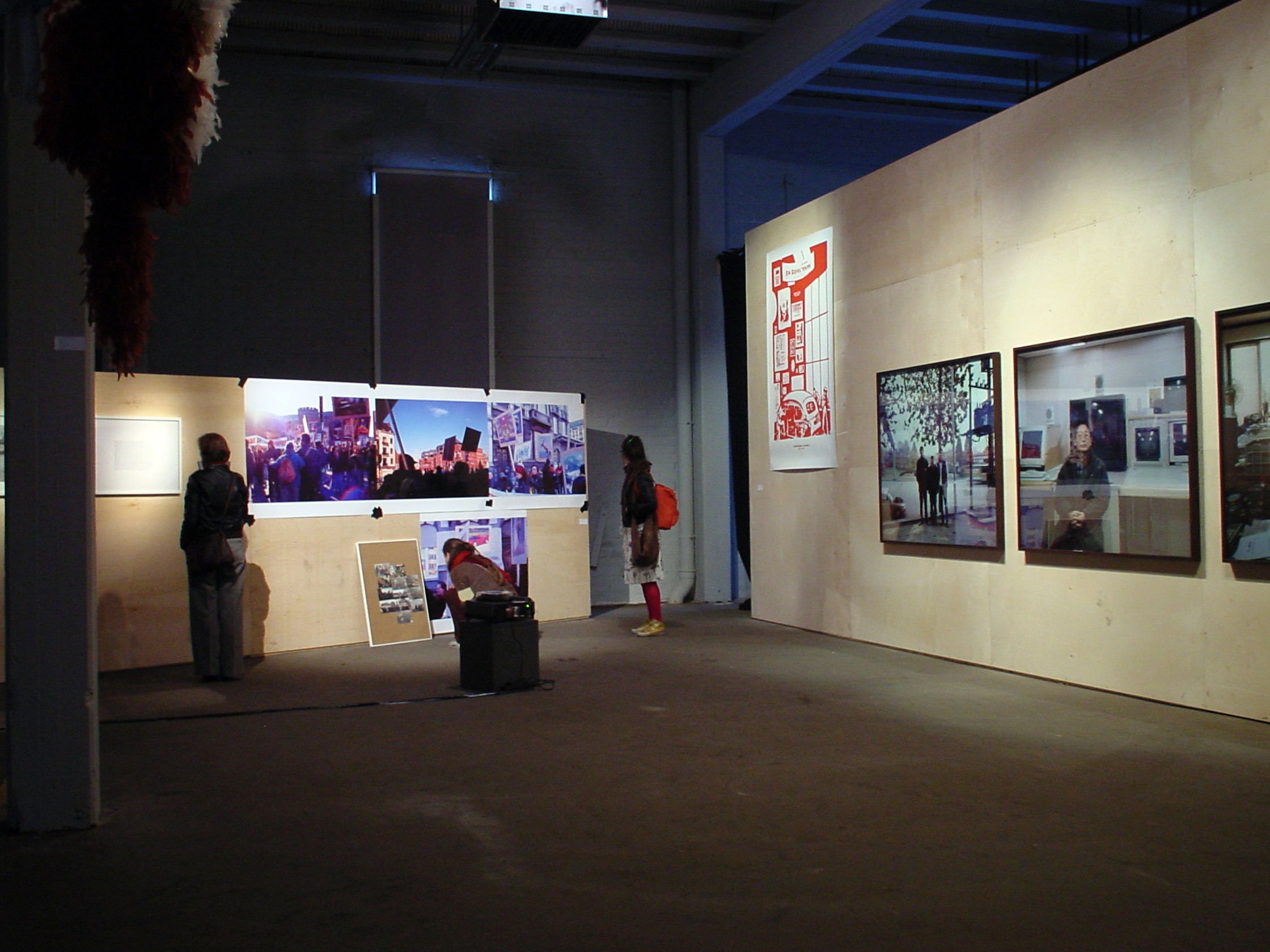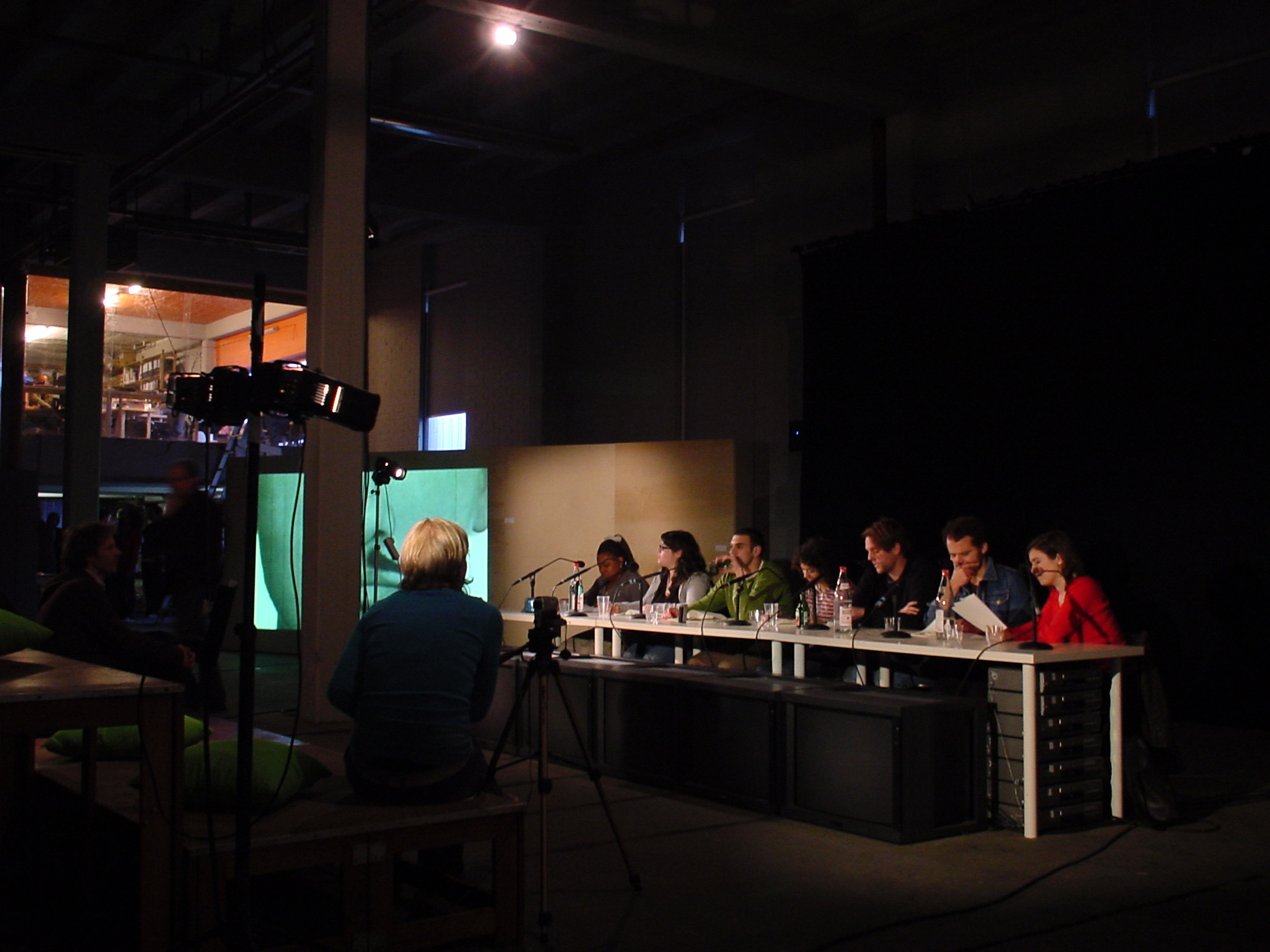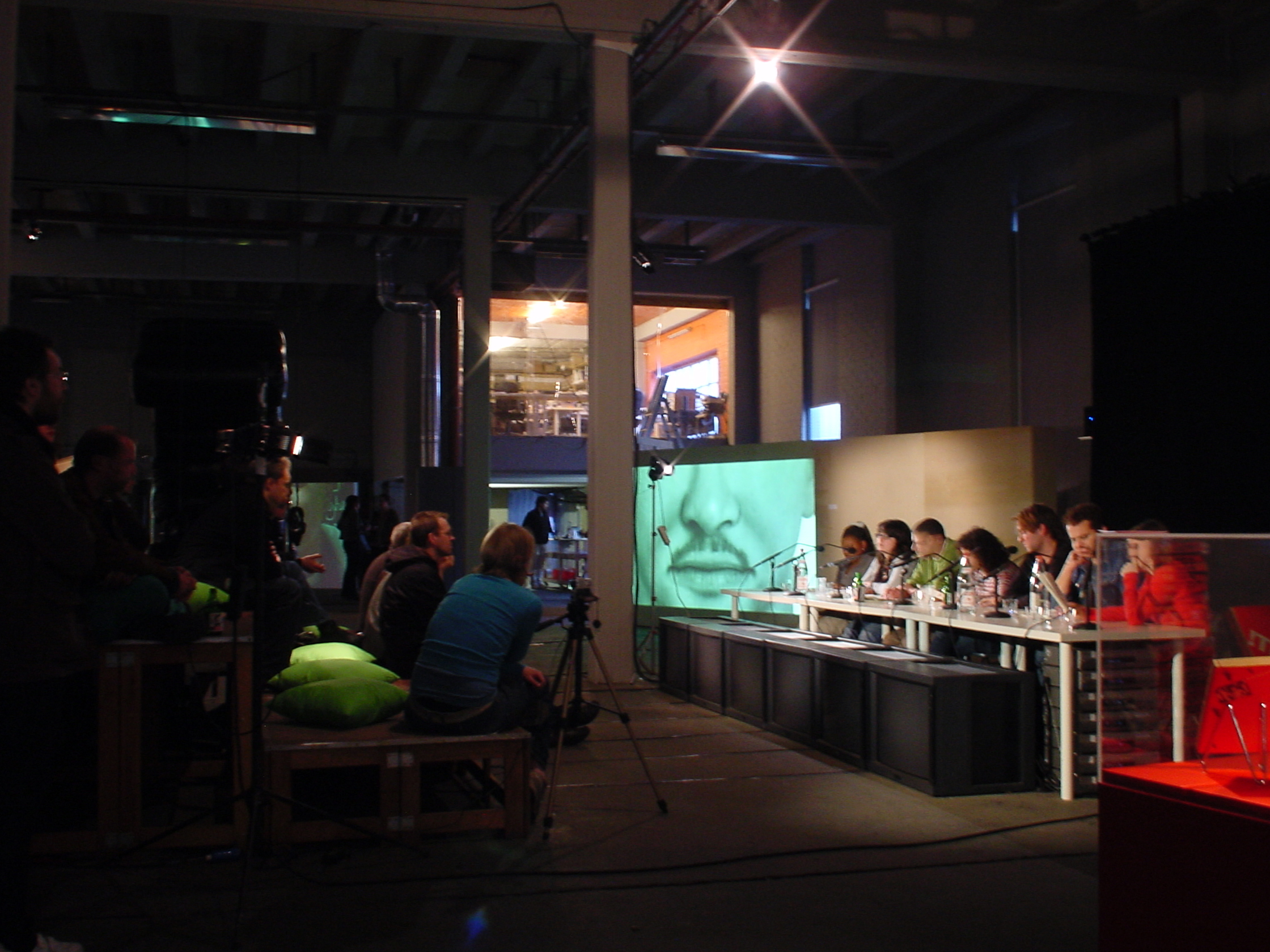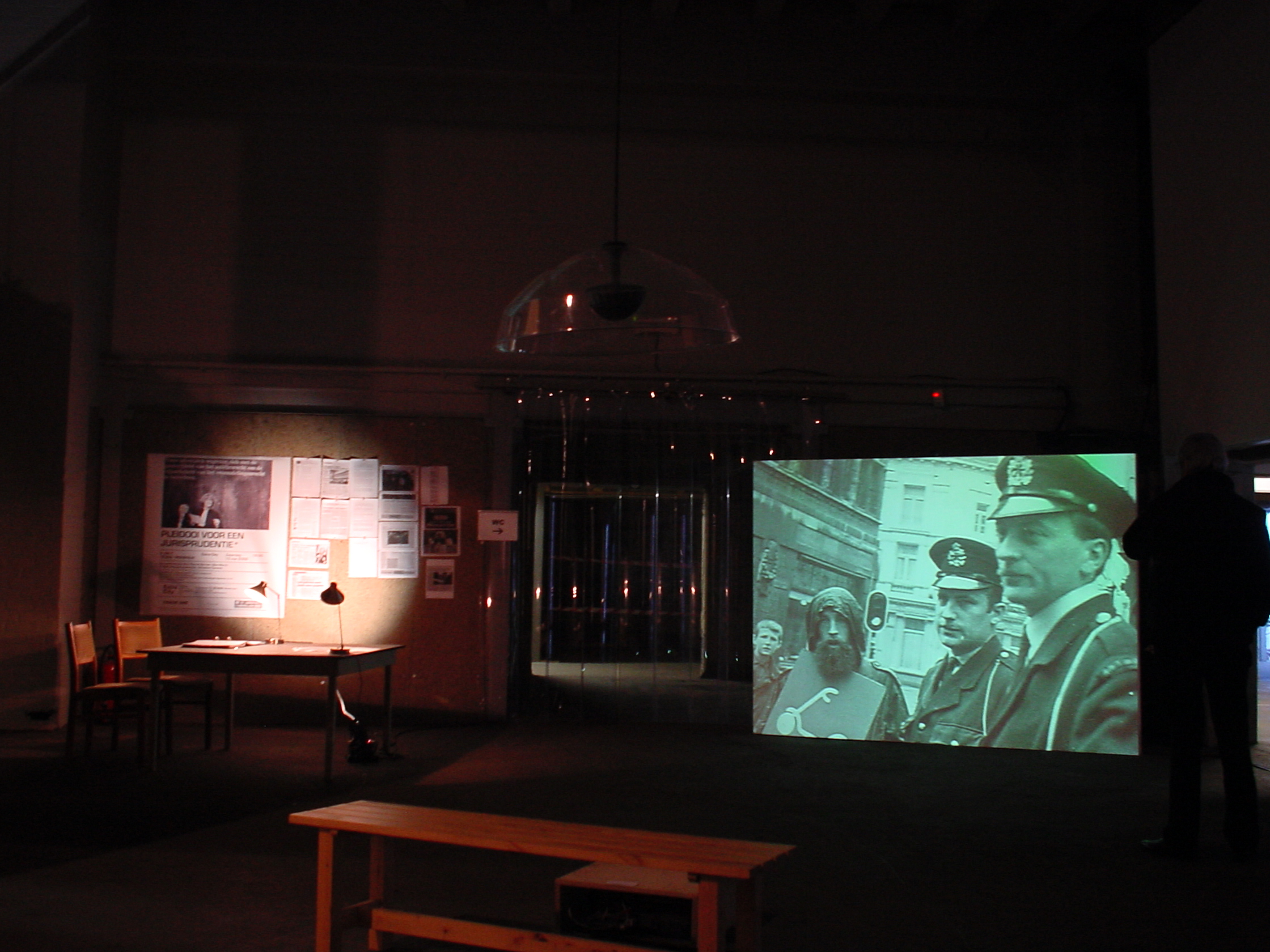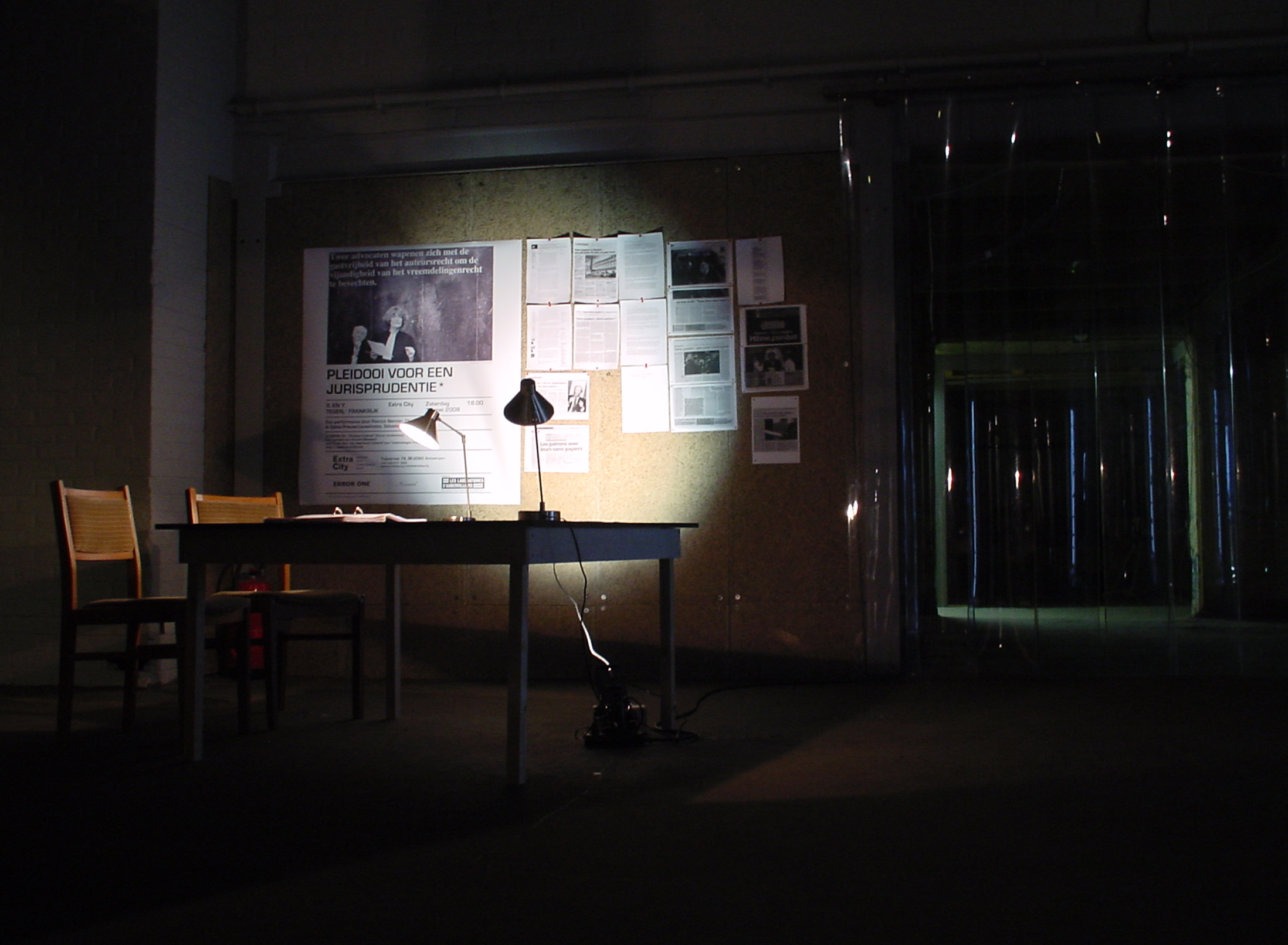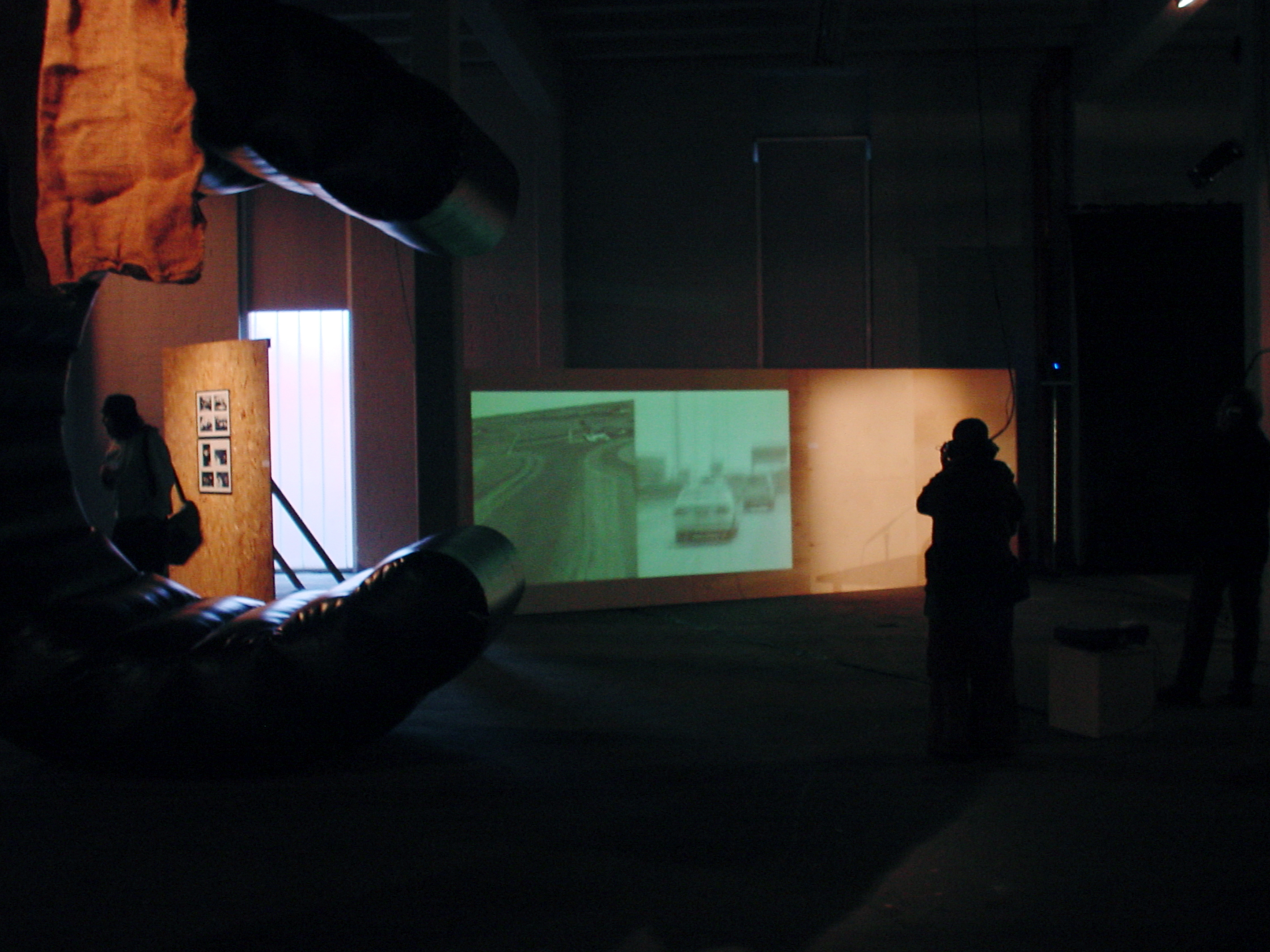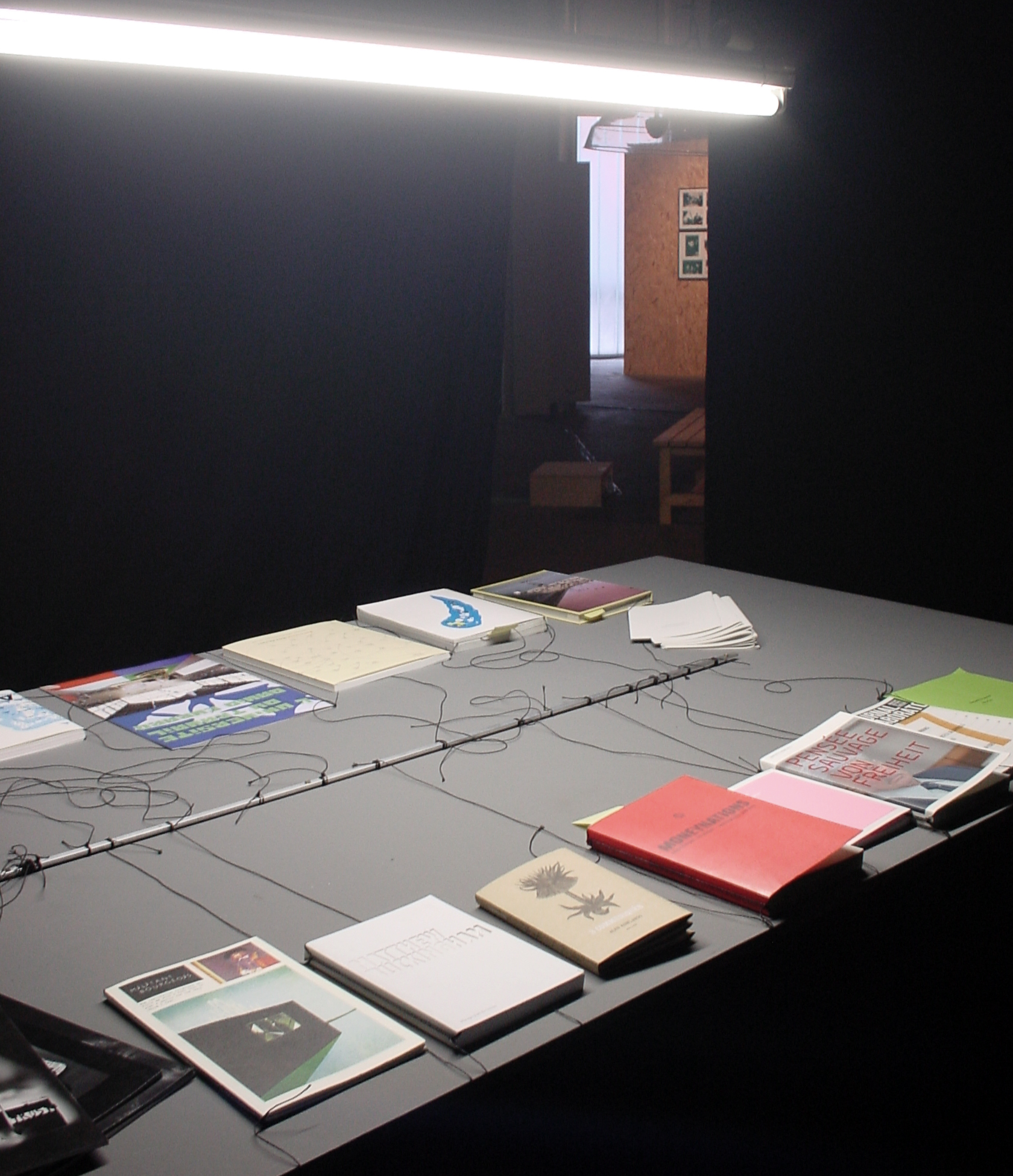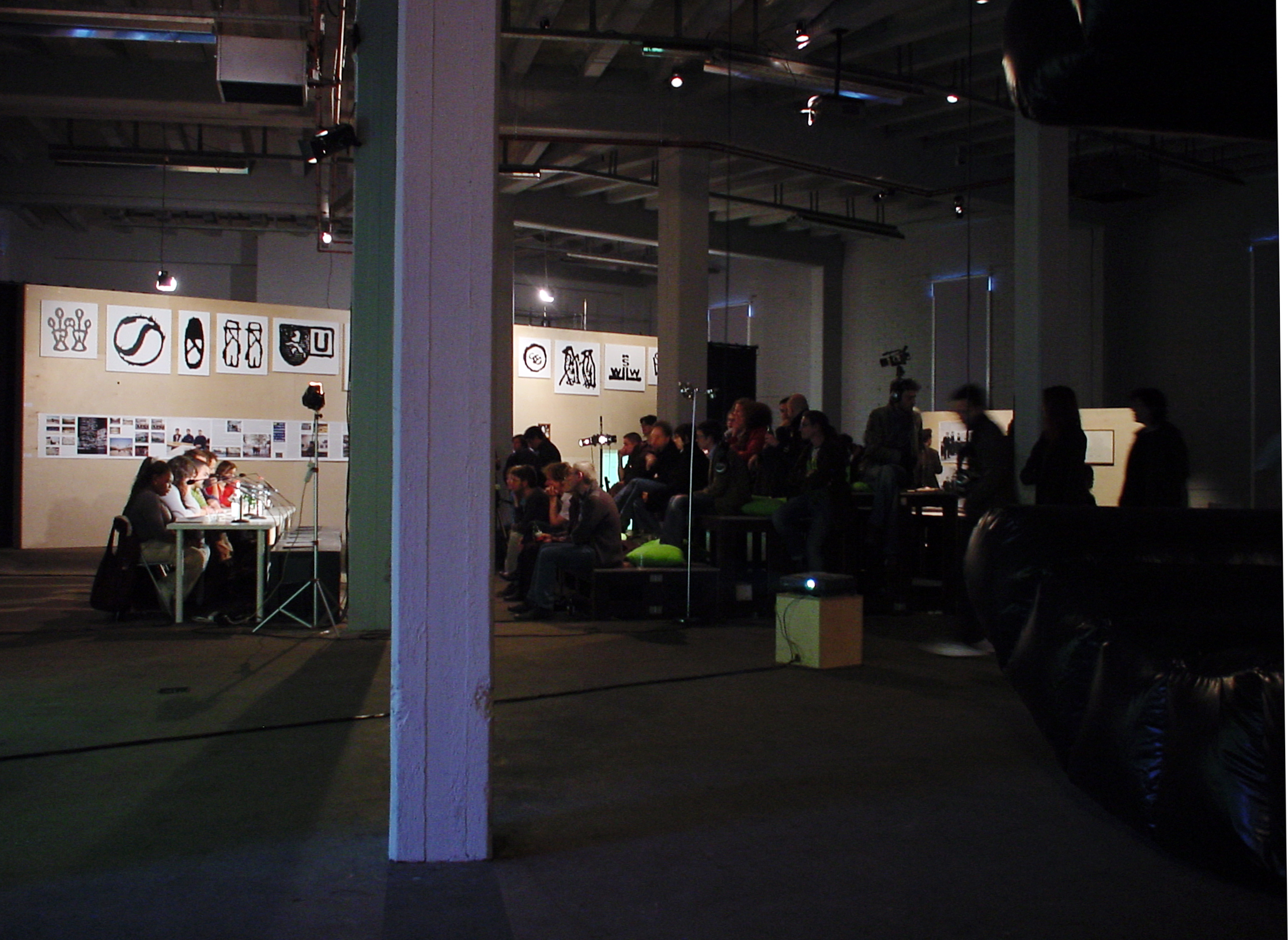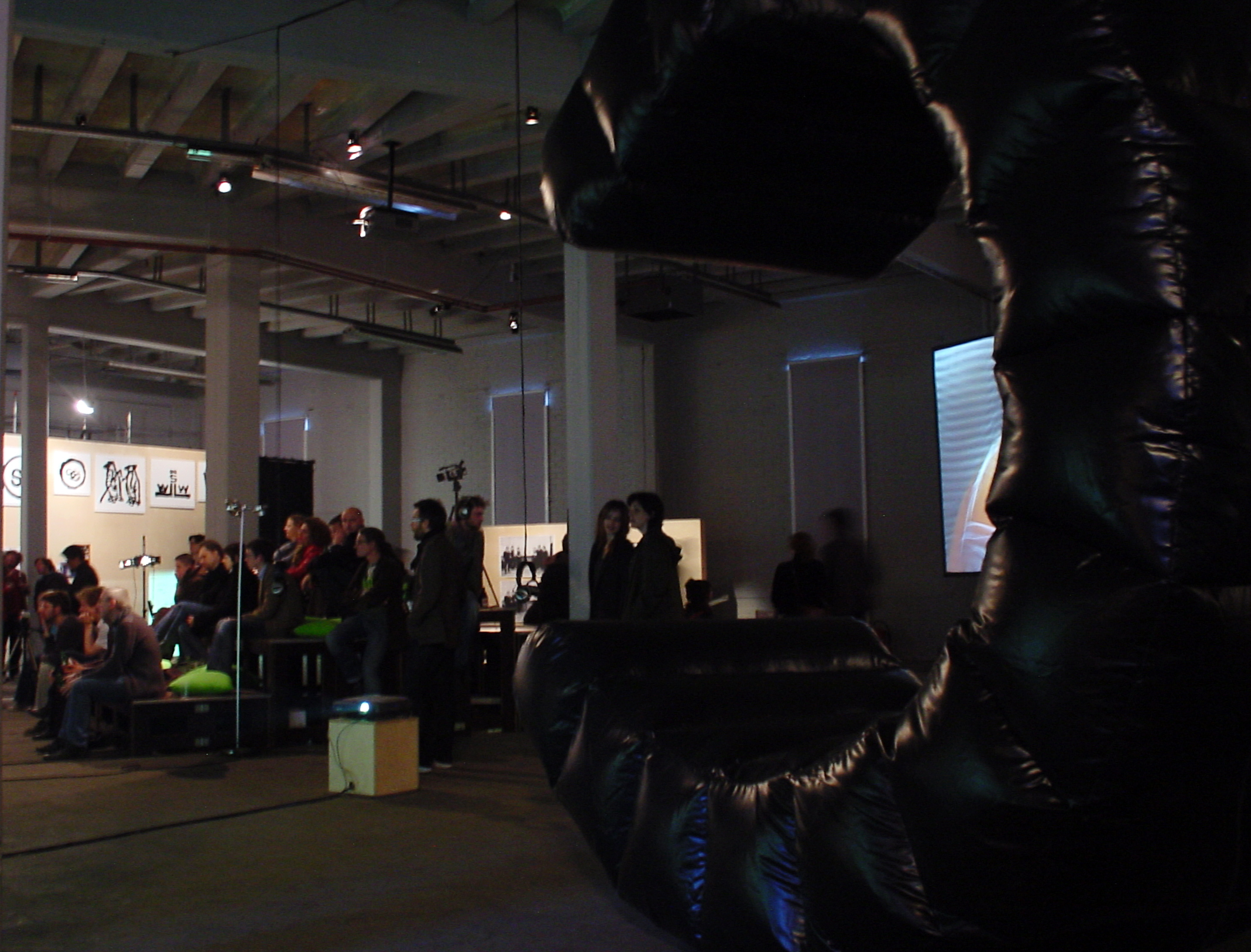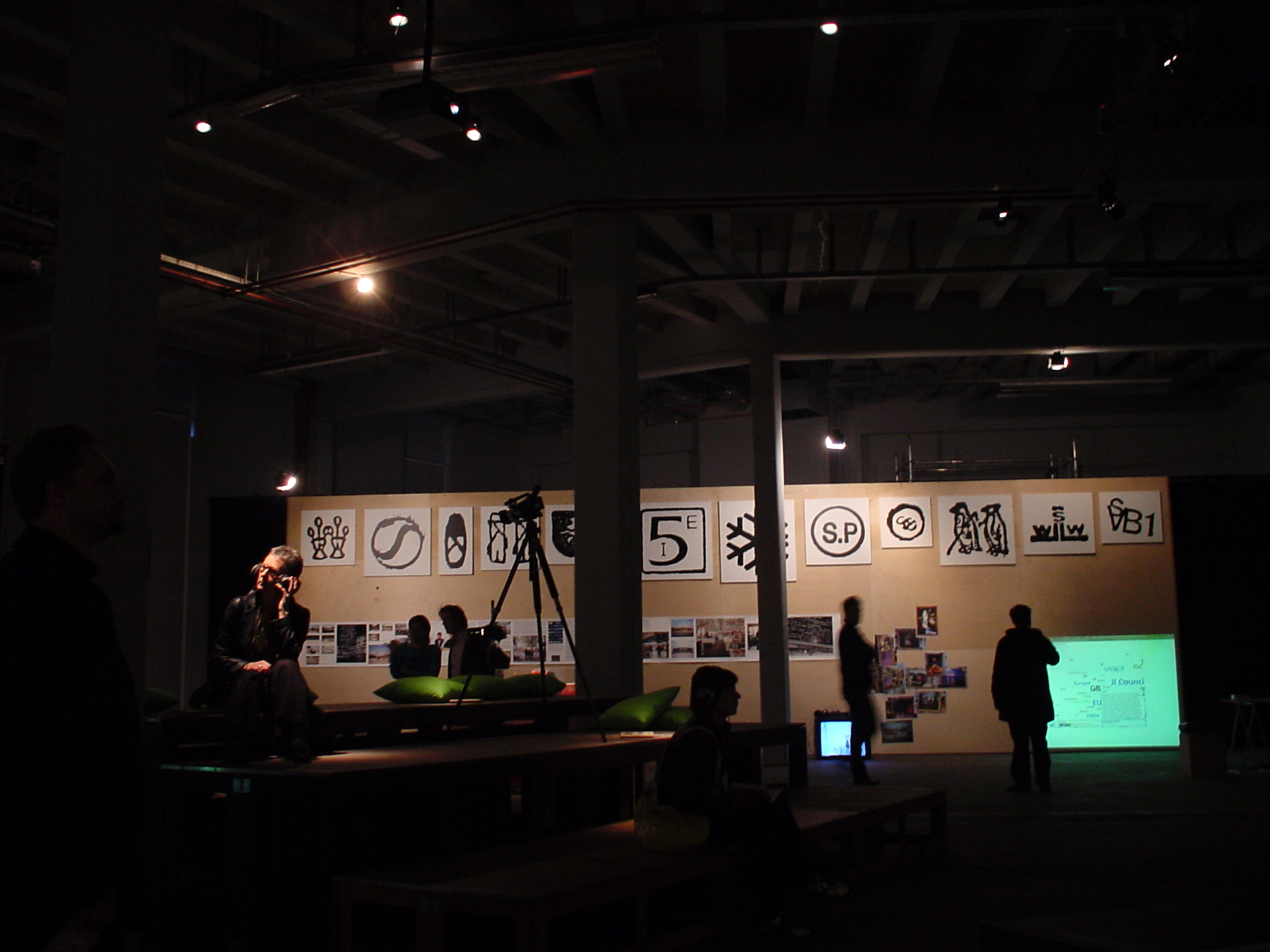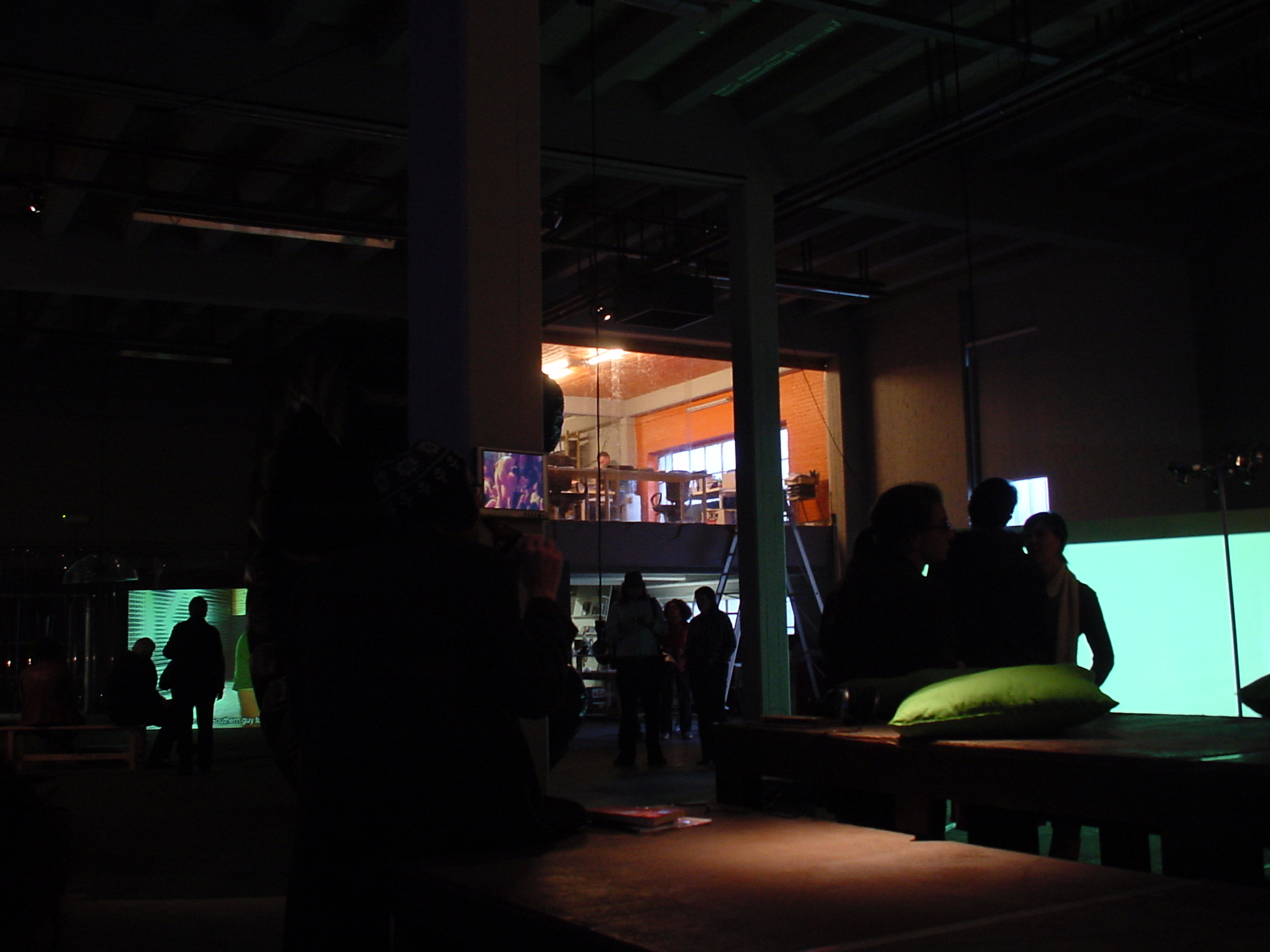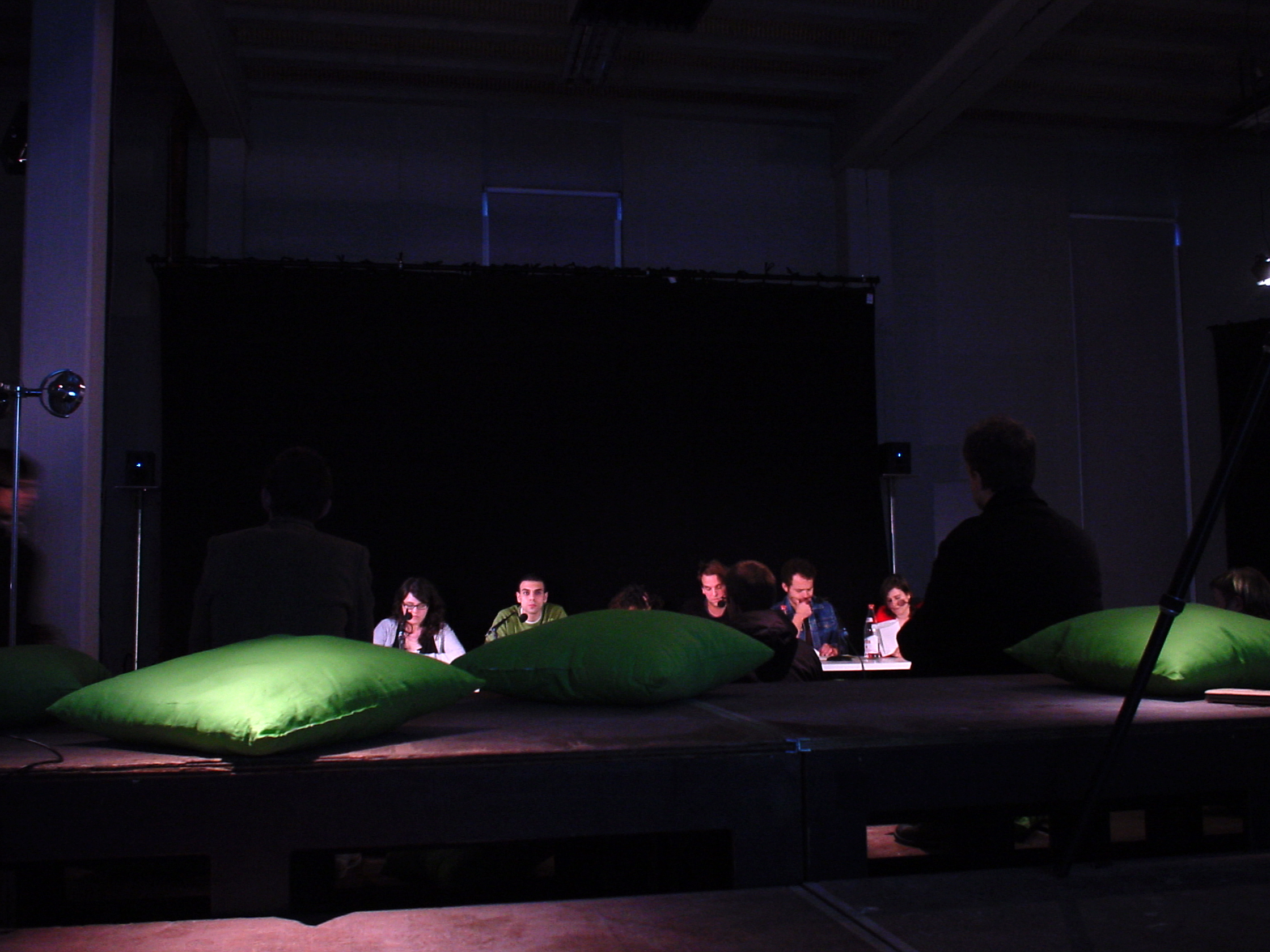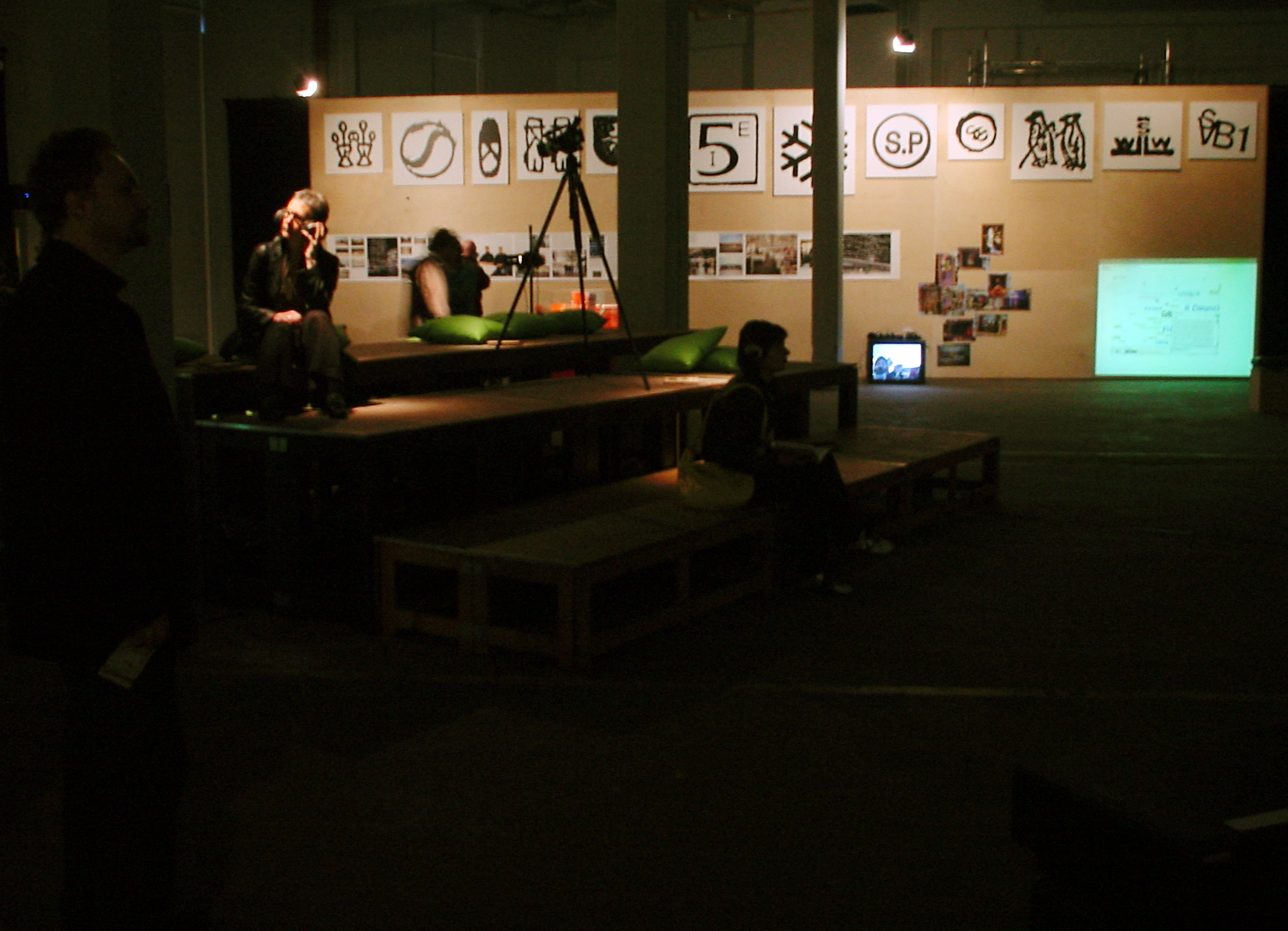Shadow Cabinet
Three Rendezvous is a series of discursive events taking place in the Shadow Cabinet (Extra City, Antwerp). Having a central role in the show, the three meetings are conceived as discursive modes of activation of its visual contents, on a gradual basis (three weeks in a row, covering the entire period of the exhibition duration). Operating simultaneously, from within and in accordance with the exhibiting mode of representation, they function on the basis of engagement among the artists, their works and the audience, at the crossroads of the visual and the textual. In the setting dominated by a centrally positioned platform, the intention they bring is to engage people acting in a certain arena to use their voices and open up the possibility for a political moment to appear in art. Questioning the roles of speech, media and law in the formation of public opinion on the notion of citizenship, they allow an oral, cinematic and administrative language of various power-discourses to appear on behalf of or intertwined with the narratives of those lacking their voice, media access or proofs of legal existence. With all the participants involved in a common conceptual framework, the margins of political action are being outlined while interrogating the principles and narratives under which the current ideological condition is being designed. In that sense, the meetings act as three central nodes in the net of contents documenting the exemplary kinds of relations between art and the social world. Through a variety of language-appearances and states of being (scripted, read, performed, written, heard, pronounced or recorded), they constitute the discursive modalities of social practices as one of the priorities of artistic practices today.
The three rendezvous attempt to avoid the possibility of positioning based upon the premises of neutrality. Accordingly, they take forms of appearance that aim to negotiate different and often quite conflicting positions within the chain of relations established upon the intersecting lines of contemporary art and politics. They concentrate, from various angles, on a single subject – the figure of contemporary subject circulating around an ethical space. It is exactly this figure that questions the general agreement among the collective identities that are nowadays recognised in the notion of citizenship: and we the, the citizens of Europe (as Etienne Balibar would put it) owe them – the Sans Papiers – for having recreated among us the sense of citizenship – insofar as this no more corresponds to an institution or a status, but to the forms of collective practice and their micro-political coming together. The way to interrogate, from various positions, what is nowadays, and what is supposed to be in the future to come – the essence of communal life forms in Western democracies – has been one of the main orientation lines behind Three Rendezvous.
The Rendezvous raise a question: as to what constitutes the reality of bio-political actions in today's democratic states? A relation established within the Moebius strip of such a political framework, in both outward and inward sides of territory of power and knowledge, is what makes the negotiation on this issue possible. Or, in Jacques Ranciere's terms: ‘The political is not the “outside”, the “real”, that art would have to reach; the “outward” is always the other side of an “inward”; what makes the difference is the topography in the frame of which the relation of inside and outside is negotiated; the real as such simply does not exist; what does exist is a framing or fiction of reality.'
Rooted in the exploration of dialogue as a possibility for empowerment, these rendezvous insist on proposing a political re-contextualisation of contemporary artistic practices, as one way to question the de-politicised and de-contaminated environments of capitalist production; they address the needs for constructing zones of interest where the public speech much be constantly re-shaped and disseminated, outside an exclusively consensus-based curatorial and political framework.
Marko Stamenkovic & Vincent Meesen, Antwerp, 2008
www.errorone.be
'Shadow Cabinet (three rendezvous)' gathers documents, art works and films which offer a plural view on borderline practices, where singular political and artistic agendas are inextricably linked. These underlying ideas form the source of weekly platforms designed to generate encounters. The Belgrade-based curator Marko Stamenkovic will contribute to the rendezvous as a shadow spokesperson.
A proposition by Vincent Meessen. A project of ERROR ONE in collaboration with Normal and Extra City.
Jacques André (B) //
Patrick Bernier & Olive Martin (F)//
Matthew Buckingham (US) //
Paul Chan (Hkg/US) //
Leo Dohmen (B) //
Chris Evans (UK) //
David Evrard (B) //
Kosten Koper (UK) & Catherine Vertige (B) //
Labor k3000 (CH) //
Mark Lombardi (US) //
Maria Pask (UK) //
Laurence Rassel (B) & Terre Thaemlitz (US) //
Alun Rowlands (UK) //
Bruno Serralongue (F) //
Sven 't Jolle (B) //
Nicoline van Harskamp (NL)//
Tristan Wibault (B)//



